CovnaV I Valve Series
Last Updated on Mar 07, 2024 at 12:10:11
Are you exploring how to choose industrial valve kits suitable for new energy, water treatment, new materials, chemical, power plants, photovoltaic, seawater desalination, bottom valve, hazardous waste comprehensive utilization, expansion butterfly valve on-site, pharmaceutical, coating, food, municipal engineering, waste incineration, steel, copper foil and feed solutions? Are you looking for reliable factories to buy new industrial valves online at lower prices, or to purchase used industrial valves from local stores or overseas manufacturers for commercial and industrial purposes? COVNA is the most reliable place for beginners and professionals to purchase the best industrial valves in 2024, selling the most popular and affordable industrial valves at the cheapest prices, and offering 24/7 free expert customer service to meet your needs within your budget. At COVNA, you can find a wide range of economical industrial valves including butterfly valves, ball valves, pneumatic and electric actuators, check valves, globe valves, control valves, etc., to meet all your requirements. Consult online to realize your business plans.
A butterfly valve is a type of quarter-turn valve used to regulate the flow of fluid in a pipeline. It consists of a disc mounted on a rotating shaft, which can be turned a quarter turn to control the flow of the fluid. Butterfly valves are commonly used in various industries such as water treatment, HVAC systems, chemical processing, and oil and gas.
One of the key features of butterfly valves is their simple and compact design, making them easy to install and operate. They offer quick operation and require less space compared to other types of valves. Additionally, butterfly valves provide excellent flow control with minimal pressure drop across the valve. They are also known for their reliability and durability, making them suitable for a wide range of applications where throttling or isolation of flow is required.
A ball valve is a type of quarter-turn valve that uses a spherical disc to control the flow of fluid through it. The ball inside the valve has a hole through the center, which aligns with the flow path when the valve is open and blocks the flow when the valve is closed. Ball valves are commonly used in various industries, including oil and gas, water treatment, chemical processing, and HVAC systems.
One of the key features of ball valves is their versatility and reliability. They provide tight shut-off and are capable of handling high-pressure and high-temperature applications. Ball valves offer quick and easy operation, requiring only a quarter turn of the handle to open or close the valve completely. Additionally, ball valves are resistant to contamination and are suitable for use in corrosive environments. Their simple design and low maintenance requirements make them a preferred choice for many industrial applications.
A check valve, also known as a non-return valve or one-way valve, is a mechanical device used to allow fluid to flow in only one direction within a pipeline. It works by automatically opening when the fluid flows in the desired direction and closing to prevent backflow or reverse flow of the fluid. Check valves are essential components in various piping systems to prevent the reversal of flow, which can lead to damage to equipment or contamination of the system.
Check valves have several key features that make them valuable in different applications. Firstly, they offer reliable and efficient operation, ensuring that fluid flows in the desired direction without any leakage or loss of pressure. Secondly, check valves require minimal maintenance due to their simple design and lack of moving parts. They are also versatile and can be used in a wide range of industries, including water treatment, oil and gas, chemical processing, and HVAC systems. Overall, check valves play a crucial role in ensuring the safety and efficiency of fluid systems by preventing backflow and maintaining system integrity.
A gate valve is a type of linear motion valve used to control the flow of fluid through a pipeline. It features a sliding gate or wedge-shaped disc that moves perpendicular to the flow of the fluid to either fully open or fully close the valve. Gate valves are commonly used in applications where a straight-line flow of fluid and minimal pressure drop is required, such as in the oil and gas industry, water treatment plants, and power generation facilities.
One of the main advantages of gate valves is their ability to provide tight shut-off, effectively stopping the flow of fluid when fully closed. They are also capable of handling high-pressure and high-temperature environments, making them suitable for demanding industrial applications. Gate valves are known for their robust construction and reliability, with minimal maintenance requirements. However, they are generally slower to operate compared to other types of valves due to the time required for the gate to move into position.
A globe valve is a linear motion valve used for fluid flow control. It features a movable disk and stationary ring seat in a spherical body. Globe valves are ideal for throttling or regulating flow in applications such as steam, hydraulic, and cooling systems. They offer precise flow control, even at high pressures and temperatures, and are known for their reliable sealing performance.
A diaphragm control valve regulates fluid flow using a flexible diaphragm. It’s commonly used in water treatment, chemical processing, and pharmaceuticals for precise flow, pressure, or level control. These valves offer accurate throttling, are resistant to corrosion, and require minimal maintenance, making them ideal for various industrial applications.
A pneumatic valve actuator automates valve operation by converting compressed air or gas into mechanical motion. It’s used in industries requiring remote or automated valve control, offering rapid response times and reliability, even in harsh conditions. Easy to install and maintain, pneumatic valve actuators are ideal for various industrial applications.
Electric valve actuators automate valve operation in industrial processes. They use an electric motor and gearbox to open and close valves. Widely applied in water treatment, oil/gas, chemical, and HVAC systems for precise flow control. These actuators offer remote control, quick response times, and low maintenance, ensuring efficient and reliable operation.
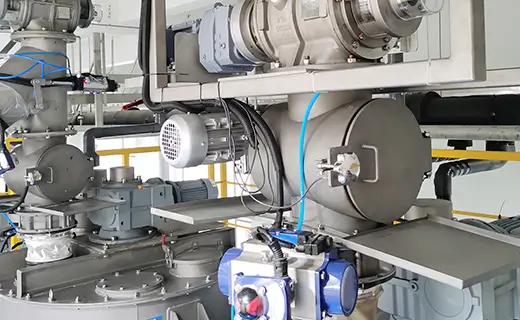
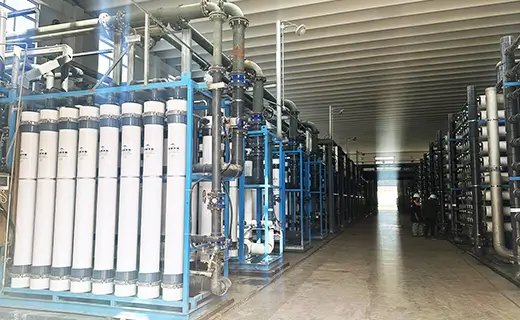
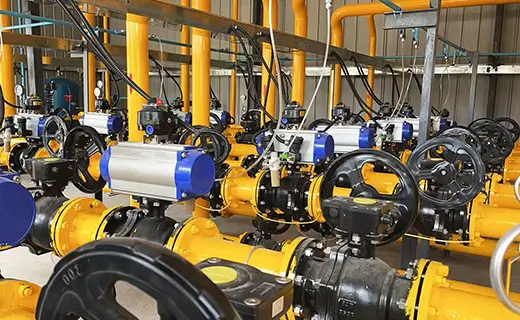
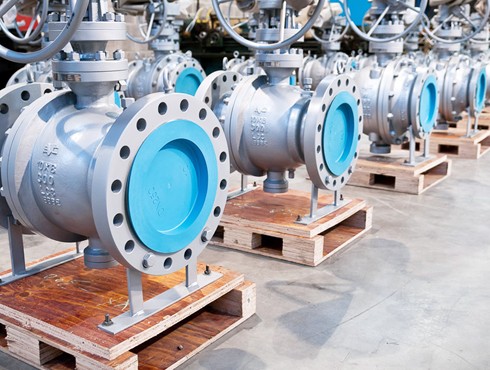
Jan 10, 2024
By Claire

Jan 12, 2024
By Claire

Jan 17, 2024
By Claire
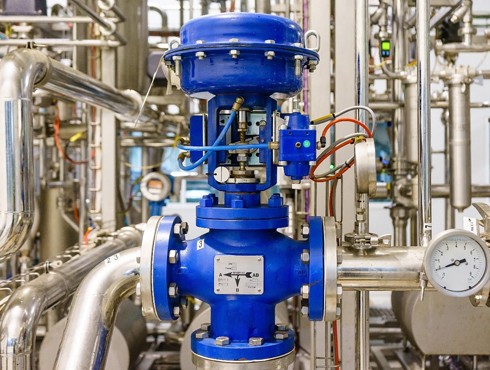
Jan 24, 2024
By Claire
Industrial valves are essential components within piping systems, serving the crucial function of regulating, directing, or controlling the flow of fluids or gases. These mechanical devices are designed to manage the movement of substances through pipelines, ensuring efficient operation across various industries.
Functioning as gatekeepers of fluid or gas flow, industrial valves possess the versatility to perform different tasks based on their design and configuration. They can initiate the flow, halt it completely, or adjust it to a desired rate. This adaptability makes them indispensable in numerous applications, from simple residential plumbing systems to complex industrial processes.
At their core, industrial valves consist of a mechanism that can be actuated manually, electrically, pneumatically, or hydraulically to open, close, or modulate the flow of substances. The design and operation of these valves vary depending on factors such as the type of fluid or gas being controlled, the pressure and temperature conditions, and the specific requirements of the application.
In essence, industrial valves serve as the lifelines of piping systems, ensuring the seamless movement of fluids or gases while allowing operators to maintain control over the process. Their reliability, precision, and versatility make them indispensable assets across a wide range of industries, including oil and gas, water treatment, chemical processing, power generation, pharmaceuticals, and many more.
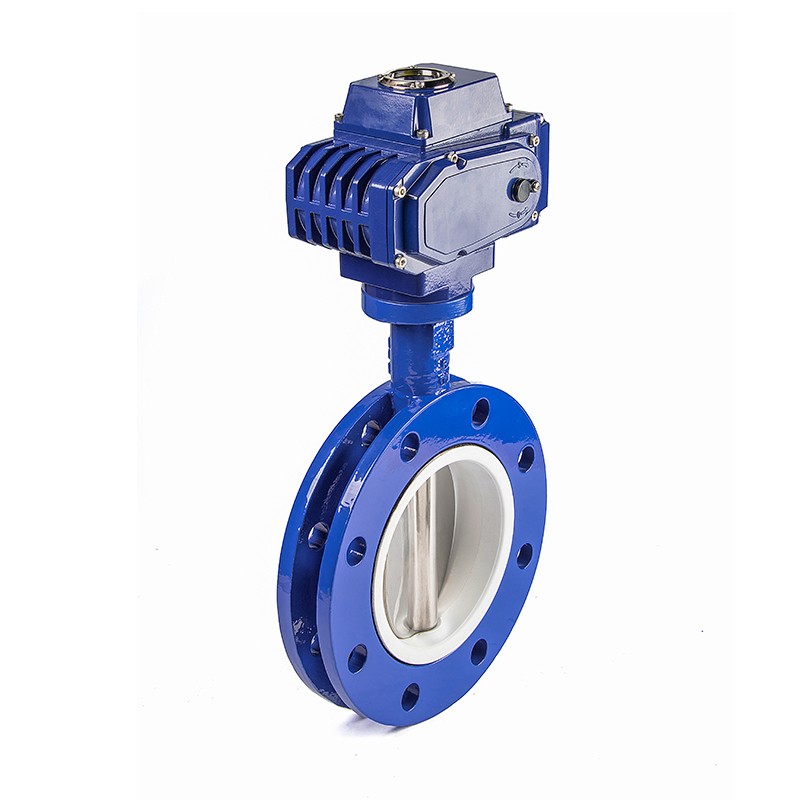
Industrial valves come in a variety of types, each designed to fulfill specific functions and cater to different applications within diverse industries. Here are some of the most common types of industrial valves:
Ball Valves:
• Known for their simple design and reliable operation.
• Consist of a spherical closure unit that allows for quick and easy on/off control of flow.
• Suitable for applications requiring tight shut-off, such as in water and gas pipelines.
Gate Valves:
• Feature a gate or wedge-shaped disc that moves perpendicular to the flow to control fluid flow.
• Ideal for applications where a straight-line flow of fluid with minimum restriction is required.
• Commonly used in large-diameter piping systems for isolation purposes.
Globe Valves:
• Characterized by a globe-shaped body and a movable plug (disc) that regulates flow by moving up and down.
• Provide excellent throttling capability and precise flow control.
• Widely used in applications requiring moderate to high flow control accuracy, such as in steam systems and process industries.
Butterfly Valves:
• Utilize a disc-shaped closure element that rotates on a shaft to control flow.
• Offer quick operation and low-pressure drop, making them suitable for large-diameter pipelines.
• Commonly used in HVAC, water distribution, and wastewater treatment systems.
Check Valves:
• Designed to prevent backflow of fluids by allowing flow in one direction only.
• Available in various configurations, including swing check valves, lift check valves, and tilting disc check valves.
• Essential for preventing damage to equipment and ensuring system integrity in piping systems.
Diaphragm Valves:
• Feature a flexible diaphragm as the closing element, which is raised or lowered to control flow.
• Suitable for handling corrosive or abrasive fluids, as the diaphragm provides a tight seal against the valve body.
• Commonly used in pharmaceutical, chemical, and food processing industries.
Plug Valves:
• Utilize a cylindrical or tapered plug with a through hole as the closure element.
• Offer excellent sealing capabilities and minimal pressure drop.
• Ideal for applications requiring frequent operation and tight shut-off, such as in fuel and oil pipelines.
Control Valves:
• Designed to regulate fluid flow by varying the size of the flow passage in response to signals from a controller.
• Available in various types, including globe control valves, butterfly control valves, and ball control valves.
• Essential for maintaining process parameters such as pressure, temperature, and flow rate in industrial processes.
Different types of industrial valves serve specific purposes and are selected based on their unique features and advantages. Here’s how each type is commonly used:
Ball Valves:
Suitable for on/off control applications where quick and easy operation is required.
Gate Valves:
Ideal for applications requiring full flow control, such as in pipelines and large-diameter piping systems.
Globe Valves:
Used for throttling and regulating flow, providing precise control over fluid flow rates.
Butterfly Valves:
Versatile valves suitable for both on/off and throttling control applications.
Check Valves:
Allow flow in one direction only, preventing backflow and ensuring system integrity.
Diaphragm Valves:
Ideal for controlling corrosive or abrasive fluids due to their tight sealing capability.
Plug Valves:
Utilized in applications requiring tight shut-off and minimal pressure drop.
Control Valves:
Regulate flow based on signals from a control system, allowing for precise control over process parameters.
Each type of valve offers distinct advantages and is selected based on the specific requirements of the application, ensuring efficient and reliable operation across various industries and sectors.
• Precise Flow Control: Industrial valves allow for precise regulation and control of fluid or gas flow rates, ensuring optimal performance and efficiency in various applications.
• Reliability: Well-designed industrial valves are engineered to withstand harsh operating conditions and provide reliable operation over extended periods.
• Durability: Industrial valves are typically constructed from high-quality materials such as stainless steel, carbon steel, and corrosion-resistant alloys, ensuring durability and longevity in demanding environments.
• Versatility: Industrial valves come in a wide range of types and configurations, making them suitable for diverse applications across multiple industries.
• Safety: Properly functioning industrial valves help maintain system integrity and prevent accidents or hazardous conditions by controlling the flow of potentially dangerous substances.
• Potential Leakage: Despite efforts to ensure tight sealing, industrial valves may experience leakage over time, especially in high-pressure or high-temperature applications.
• Pressure Drop: Some types of industrial valves can cause pressure drop across the valve, leading to energy losses and reduced system efficiency.
• Maintenance Requirements: Industrial valves require periodic inspection, maintenance, and repair to ensure optimal performance and prevent operational issues or failures.
• Cost: Industrial valves, especially those designed for specialized applications or harsh environments, can be costly to purchase and install.
• Complexity: Certain types of industrial valves, such as control valves with sophisticated instrumentation, may require specialized knowledge and skills for proper installation, operation, and maintenance.
Overall, while industrial valves offer numerous benefits in terms of flow control, reliability, and durability, it’s essential to consider potential drawbacks and address them through proper design, installation, and maintenance practices.
When purchasing industrial valves, it’s essential to consider various factors to ensure that you select the right valves for your specific application needs. Here are some key considerations:
Valve Type and Size: Determine the type of valve required based on its intended function, such as ball valves for on/off control or globe valves for throttling. Additionally, consider the size of the valve to ensure compatibility with your piping system.
Operating Pressure and Temperature: Evaluate the operating conditions, including pressure and temperature ranges, to ensure that the selected valves can withstand the environmental conditions without compromising performance or safety.
Material Compatibility: Select valves constructed from materials compatible with the fluids or gases being handled to prevent corrosion, erosion, or contamination. Common materials include stainless steel, carbon steel, brass, and various alloys.
Flow Requirements: Consider the flow rate and directionality requirements of your system to choose valves that can adequately control the flow while minimizing pressure drop and energy losses.
End Connections: Determine the appropriate end connections, such as threaded, flanged, or welded connections, based on your piping system configuration and installation requirements.
Budget Constraints: Establish a budget for valve procurement and consider factors such as initial purchase cost, long-term maintenance expenses, and potential energy savings to make cost-effective decisions.
Supplier Reputation and After-Sales Support: Research and select reputable suppliers with a track record of delivering high-quality products and reliable customer support. Ensure that the supplier offers comprehensive after-sales services, including technical assistance, warranty coverage, and spare parts availability.
By carefully considering these factors and conducting thorough research, you can make informed decisions when purchasing industrial valves, ensuring optimal performance, reliability, and safety in your industrial processes.
Ensure compatibility with existing piping systems, regulatory compliance, and future scalability when selecting industrial valves. Regular maintenance and periodic inspections are necessary to ensure optimal performance and safety.
In conclusion, understanding the different types, applications, advantages, and considerations when purchasing industrial valves is essential for effectively managing fluid and gas flow in industrial processes.
Are you still hesitant about purchasing COVNA valves? What better evidence is there than hearing unbiased evaluations from our real customers? Continuously striving for customer satisfaction, we regularly conduct surveys to gauge their opinions on our products and services. As you’ll see in the reviews and ratings below, numerous users have shared their personal experiences.
COVNA collects insights from consumers who have purchased and owned our valves, assessing their operational experiences and feedback on the purchasing process and maintenance services. Ratings are determined by customers based on their initial owner response and quality feedback for newly purchased products, satisfaction with COVNA’s technical support and customer service, or long-term ownership experiences regarding performance and reliability. We guarantee that all reviews are based on genuine experiences from customers worldwide, providing valuable references for local consumers.
We are always committed to delivering top-notch products and exceptional service, driving us to innovate and grow continuously. Discover what our customers have to say about COVNA valves and experience the quality and reliability they provide.

From United States
5 out of 5
I recently purchased several COVNA butterfly valves for our water treatment facility, and I couldn’t be more impressed with their performance. The valves are exceptionally well-built and durable, precisely regulating the flow of water with ease. Not only are they efficient, but they also require minimal maintenance, saving us valuable time and resources in the long run. The team at COVNA provided excellent customer service throughout the purchasing process, answering all my questions promptly and ensuring smooth delivery to our facility. Overall, I highly recommend COVNA valves to anyone in need of reliable and high-quality industrial valves.
March 15, 2024

From Mexico
5 out of 5
I’ve been using COVNA ball valves in our chemical processing plant for several months now, and I must say, they’ve exceeded my expectations. These valves are incredibly robust and resistant to corrosion, making them ideal for our harsh industrial environment. The precision with which they control the flow of chemicals is unmatched, providing us with enhanced efficiency and productivity. Additionally, the team at COVNA provided exceptional technical support, assisting us in selecting the right valves for our specific needs and ensuring seamless integration into our existing systems. I’m thoroughly impressed with the performance of COVNA ball valves and would recommend them to any industrial facility looking for reliable fluid control solutions.
March 20, 2024

From Germany
5 out of 5
I recently invested in COVNA check valves for our wastewater treatment plant, and I am thoroughly impressed with their reliability and efficiency. These valves have significantly improved the integrity of our system, preventing backflow and ensuring uninterrupted operations. The quality of construction is evident, with each valve exhibiting superior durability and resistance to corrosion. Additionally, the team at COVNA provided excellent support throughout the entire process, from initial consultation to post-installation assistance. Their commitment to customer satisfaction is commendable, and I have no hesitation in recommending COVNA check valves to others in the industry.
April 5, 2024
Finding something you consider the best is a fantastic feeling, but great things are meant to be shared with others, whether they are physical products or virtual services. At COVNA, if you believe our high-quality industrial valves are worth purchasing, or our excellent services have earned your recognition, or our creative projects and ideas have benefited you, or our instructional videos have simplified your exploration and discovery without tedious steps, or our featured stories are meaningful to you, or our helpful guides have been beneficial, please don’t hesitate to click the social buttons below and share everything COVNA brings to you with your family, friends, and followers on Facebook, Twitter, Linkedin, Instagram, and Pinterest. All relationships in life involve value exchange, which is mutual and positive. Selfless sharing allows everyone to grow together.